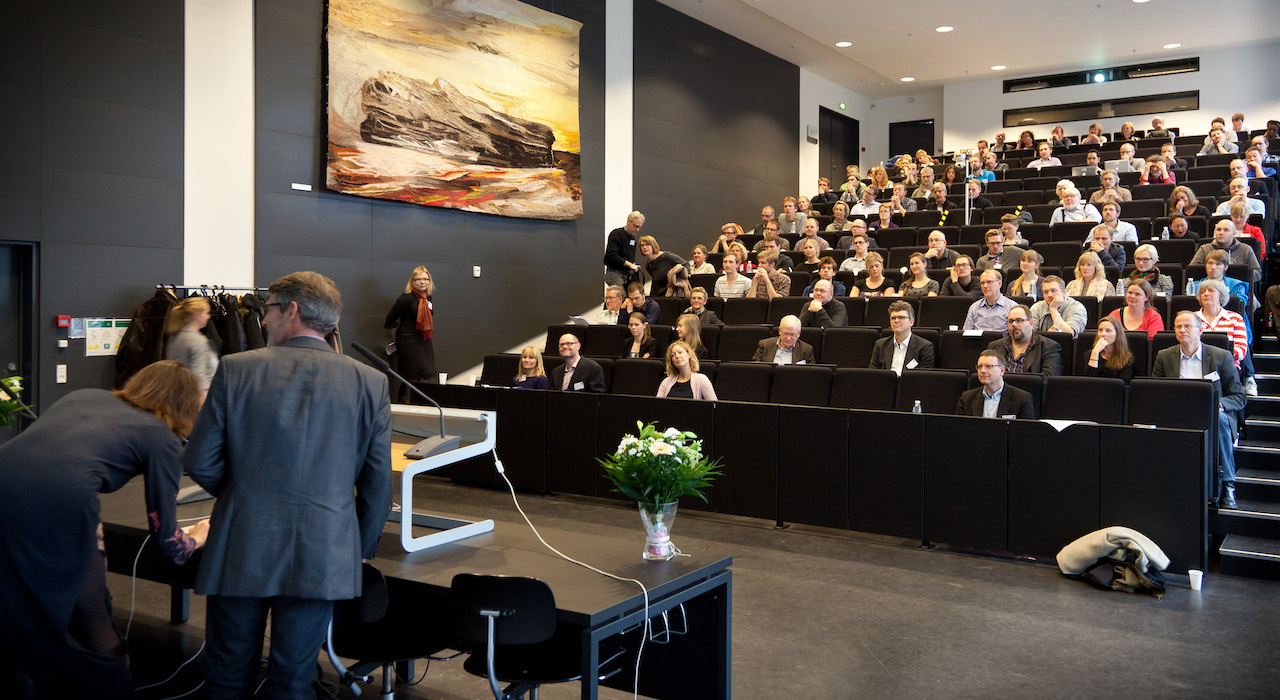Centre for Communication and Computing (CCC) is closing
After almost eight years in action, the interdisciplinary research centre CCC will be closing as of 1 August 2019. The interdisciplinary academic work will, however, continue in direct collaboration between the involved departments and researchers without involving faculty levels.

Since the centre opened on 1 November 2011 as a collaboration between Faculty of Science and Faculty of Humanities, it has established several interdisciplinary and cross-faculty initiatives, research projects and outreach activities and the interdisciplinary field of communication and computing will continue as an important and pertinent research topic and discussion at University of Copenhagen.
The closing of CCC was decided by the CCC Steering Committee on 8 May 2019.
- I would like to thank everyone who has been involved in CCC over the years for your support to CCC. That CCC as an organization is now ending, does not mean that it has not been important. Rather, it has been instrumental in ensuring that the investigation and the discussion of the field of communication and digitization have become central, not only for the departments directly involved in CCC, but in much broader circles both within and outside the University of Copenhagen, says Julie Sommerlund, Chairman of the Steering Committee.
Eight years of interdisciplinary research and collaboration
With grants from Carlsberg Foundation, Independent Research Fund Denmark, VELUX Foundation and European Research Council among others, CCC researchers have investigated how global cultural, political and economic differences influence our behavior online and our media use in general. They have investigated how to use our body to interact with a computer – without the traditional keyboard and mouse. They have developed a mobile app to make it easy for pacemaker patients to collaborate with clinicians in detecting early signs and symptoms.
The projects have spanned across many research fields - but common to them all have been the interdisciplinary approach. One example is the research project Computational Artefacts (CompArt), which has just been completed. In this project, researchers within both humanities, social sciences, and computer science have contributed with a conceptual framework to analyse computer-supported cooperative work, they have increased our understanding of how IT can be used to support collaborative work processes in public case management, clinical work, and architectural work, and they have developed process modeling and process mining - i.e. automatical analysis of processes and their bottlenecks, inconveniences, and performance.
- The project could not have been completed without a combination of knowledge and expertise. Researchers in the project with a humanistic and social science background have contributed with insight into communication and collaboration at the workplace as well as knowledge on and experience with conducting ethnographic field studies. Researchers with computer science background have contributed with knowledge about the technological possibilities and limitations as well as with competences in design and development, says Jørgen Bansler, professor at Department of Computer Science and PI on the project.
Eight years of outreach and innovation
When CCC was established, the centre took over the leadership of The Experience Lab where staff and students could conduct experiments and observations of human interaction with digital media and other IT applications. Since then, The Experience Lab has grown into three new labs, situated at South Campus, that saw the light of day in December 2017; Observe, Move and Make Lab.
In the Observe Lab, staff and students can set up, record, observe and analyse usability studies, focus groups and product testing. In the Move Lab they can explore different types of virtual reality tools such as HTC Vive for VR (Virtual Reality) and Microsoft HoloLens for MR (Mixed Reality). And the Make Lab provides a wide range of tools, equipment, and software that helps bring ideas to life.
The labs will continue as a collaboration between Department of Nordic Studies and Linguistics (NorS), Department of Computer Science (DIKU), and the new department that will be established after the fusion of Department of Media, Cognition and Communication (MEF) and Department of Information Studies (INF).
During the years, CCC has also generated a wide range of academic talks, workshops, and seminars within the various academic fields. Most recently, a lecture series on Glocal Digital Infrastructures in 2017 and a seminar series on Natural Language Processing in 2018.
Contact
Julie Sommerlund
Chairman of the CCC Steering Committee
sommerlund@hum.ku.dk
Tina Virenfeldt Kristensen
Communication Consultant
tikr@di.ku.dk
